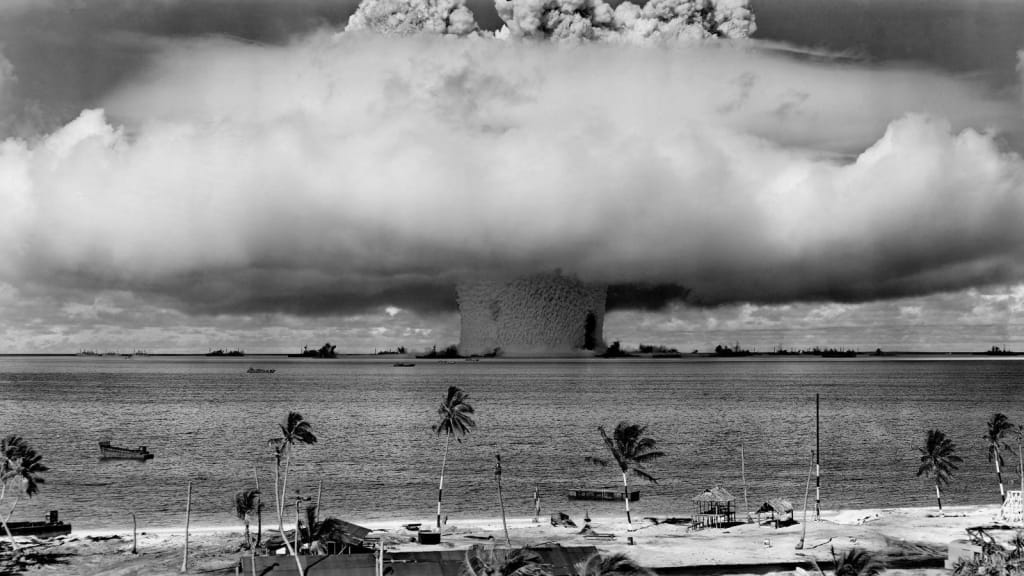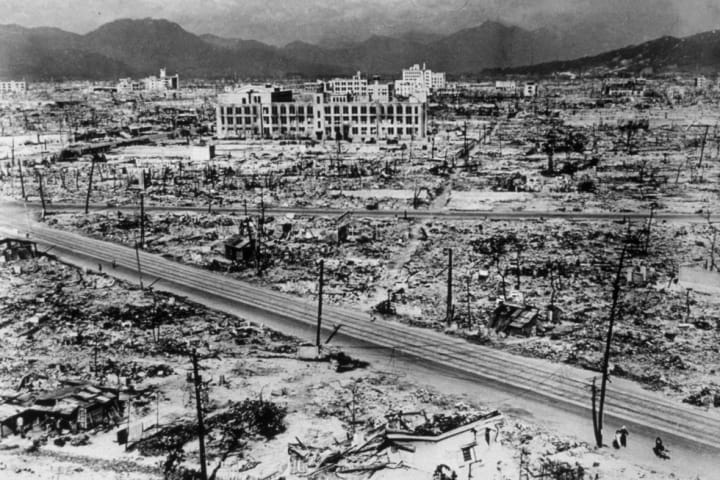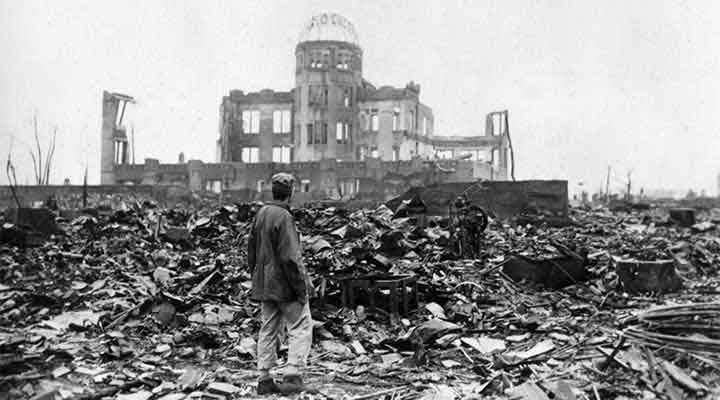The Hiroshima and Nagasaki Bombings
The Dawn of the Nuclear Age

Hiroshima and Nagasaki's bombings in August 1945 were crucial moments that changed the course of history irrevocably. This 600-word synopsis examines the context, significant incidents, effects, and long-term effects of these horrific attacks during World War II.
Background and Context:
In 1945, when the Second World War was about to end, the Allied forces were advancing on Imperial Japan. The Pacific region of the war was characterized by intense combat, including the engagements at Iwo Jima and Okinawa, which had a terrible cost on both sides. Despite suffering severe losses, Japan's leadership remained defiant and gave no indication that it would submit.
The top-secret Manhattan Project of the United States had successfully produced two atomic bombs in the interim. These bombs fuelled by nuclear fission have an unequaled capacity for devastation.
The Bombings:
- Hiroshima (August 6, 1945): The American B-29 bomber "Enola Gay" detonated the first atomic bomb, code-named "Little Boy," on the Japanese city of Hiroshima early that morning on August 6. The explosion, which was triggered by roughly 15,000 tons of TNT, quickly killed tens of thousands of people and left extensive damage.
- Nagasaki (August 9, 1945): The second atomic weapon, "Fat Man," was detonated on Nagasaki three days later, on August 9, 1945. The bomb, which produced about 21,000 tons of TNT, caused a great deal of death and destruction.

Consequences:
The bombings of Hiroshima and Nagasaki had profound and immediate consequences:
- Human Toll: In both locations, the number of recent fatalities was astonishing. Tens of thousands perished instantly, and numerous others perished from radiation sickness and injuries in the days, weeks, and months that followed. Survivors were still being affected by the long-term effects of radiation exposure years later.
- Destruction: Both cities were left in ruins as a result of the bombings, which destroyed infrastructure, entire neighborhoods, and buildings.
- Surrender and the End of World War II: The shock of the atomic bombings hastened Japan's capitulation, along with the Soviet Union's declaration of war against it. The announcement of Japan's unconditional surrender by Emperor Hirohito on August 15, 1945, ultimately brought an end to World War II.
Long-Term Impact:
The bombings of Hiroshima and Nagasaki had far-reaching consequences:
- Nuclear arms race: The development of atomic weapons brought about the nuclear era and prepared the world for the Cold War between the US and the USSR. A severe international standoff resulted from the rush between the two superpowers to develop and stockpile nuclear weapons.
- Moral and Ethical Debates: The bombs gave rise to intense moral and ethical discussions. Others considered them as unjustified acts of mass destruction and civilian misery, while some saw them as necessary to speed the conclusion of the war and preserve lives.
- Anti-Nuclear Movements: Nuclear weapons' deadly impact sparked anti-nuclear movements and calls for disarmament. These movements had a big influence on the creation of international treaties that were meant to stop the use of nuclear weapons.
- Japan's Postwar metamorphosis: Japan had a spectacular postwar metamorphosis despite being severely damaged by the bombings. The country adopted pacifism and rejected war, putting its emphasis on economic recovery and reconstruction.
- Global Security: Following the bombings, efforts were made internationally to stop the spread of nuclear weapons and govern them through treaties like the Treaty on the Non-Proliferation of Nuclear Weapons (NPT).

Legacy and Lessons
The atomic bombings of Hiroshima and Nagasaki serve as a sobering reminder of the destructive potential of nuclear weapons and the necessity of concerted international action to forego their use. They demonstrate the value of diplomacy, resolving disputes, and pursuing peace in a world that is becoming more interconnected.
These events' legacy still has an impact on discussions about how to utilize power responsibly during conflicts and in international relations. The atomic bombings of Hiroshima and Nagasaki serve as a somber reminder of humankind's capability for annihilation and the need for cooperation in order to guarantee a more secure and peaceful world.
About the Creator
The Knowledge
Welcome to a virtual realm where the past, present, and future converge to unravel the mysteries of history, the wonders of science, and the treasure trove of general knowledge.






Comments
There are no comments for this story
Be the first to respond and start the conversation.